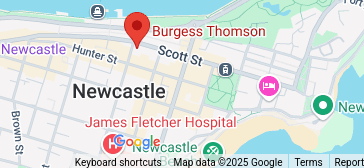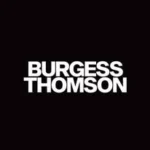Property Law Advice
Property & Conveyancing
Expert Legal Advice for Property Purchases & Sales
Property transactions and disputes can be complex, requiring expert legal insight to navigate effectively. At Burgess Thomson, we offer comprehensive property law advice to individuals and businesses, ensuring that your property matters are handled with precision and care.
Whether you’re buying, selling, or managing a property, our experienced lawyers provide tailored guidance to protect your rights and resolve issues efficiently.
Why You Need Expert Property Law Advice
Property law covers a wide range of legal issues, from easements and rights of way to disputes over boundaries and dividing fences. Without the right legal advice, these matters can escalate into costly and time-consuming conflicts. Our team specialises in offering practical solutions to complex property issues, ensuring that you’re well-equipped to manage any challenges that arise.
GET A QUICK QUOTE
Enter your details for an obligation free quote.
LEARN MORE
Find out more about how we can help Buying Property.
Key Areas of Property Law Advice
At Burgess Thomson, we provide expert advice on a range of property law matters, from easements and limited title, through to boundary disputes and more.
Easements
An easement is an interest held by another landowner or statutory body registered on the title of the property which affects a defined area of the land. Generally, this will be a right to use the part of the land for a specified purpose such as a right of way. We can advise you on any easement whether it is a positive, negative, private or public and can act on your behalf as the dominant tenement (party the interest benefits), or the servient tenement (party the interest burdens).
Restrictive Covenants
In New South Wales (NSW), a restrictive covenant is a legal agreement that limits how land can be used or developed, often imposed by a developer at the time of subdivision. These covenants can continue indefinitely, binding future owners and restricting things like building height, style, or types of commercial activity. While some covenants can be removed after 12 years for certain aspects, like building materials or fencing, others may remain on title, even if they conflict with current development or public expectations.
Limited Title
When a property’s boundaries have not been fully defined by a survey in a new deposited plan (DP) a Limited Certificate of Title is issued. A Limited Certificate of Title’s purpose is to indicate that the boundaries of the property have not been examined by NSW Land Registry Services which may be a concern for prospective purchasers of a property. Removing the limitation requires a survey to be conducted and lodged which satisfactorily defines the boundaries. This an additional cost that must be factored into decisions made concerning property with a Limited Title.
Rights of Way
A right of way is an example of an easement whereby a right is granted to travel over land which they do not own in a particular manner. This does not allow the taking of anything from the property such as crops or soil, but merely confers a right to pass through.
You may also encounter a right of way in gross, otherwise known as a statutory right of way. These differ in that they are created in favour of a statutory authority or company prescribed by regulations. We can assist you in relation to a property effected by a right of way to ensure you know your rights and responsibilities.
Possessory Title
The law regards the possession or occupation of land as evidence of ownership. Therefore, a trespasser or squatter (adverse occupier) who has had uninterrupted possession of land can displace the legal owner of the land’s rights to recover such land. To displace these rights, consider the following circumstances:
The Land is Owned by the Crown:
- If adverse possession began after 1 January 1970, the adverse occupier must prove that possession has been held for 30 years.
- If adverse possession began before 1 January 1970, the adverse occupier must prove that possession has been held for 60 years.
The Land is Owned Privately:
- If adverse possession began after 1 January 1970, the adverse occupier must prove that possession has been held for 12 years.
- If adverse possession began before 1 January 1970, the adverse occupier must prove that possession has been held for 20 years.
Dividing Fences
A dividing fence separates the land and property of neighbouring owners. The fence, which can be built out of any different material, must be approved under the Dividing Fences Act 1991 (NSW). In the event of a dispute over the position, construction or cost of the dividing fence, the team at Burgess Thomson can advise and assist you.
Boundary Disputes
Boundary disputes can occur when an agreement cannot be met on the correct location of a boundary, such as a dividing fence. Disputes over boundaries can be both costly and time consuming as these are traditionally resolved by the Supreme Court.
Alternatively, an application under Part 14A of the Real Property Act 1900 (NSW) can be lodged to NSW Land Registry Services, allowing the Registrar General to resolve the dispute in a cost and time effective manner. Burgess Thomson can assist you with any issues related to boundary disputes and assist you to receive a satisfactory outcome.
Adverse Possession
Adverse Possession is when someone becomes eligible to take legal right over land after occupying it for an extended period of time. NSW law determines that an individual must be occupying land or property for at least 12 years before able to take legal Adverse possession. Adverse possession, colloquially referred to as “Squatters rights” is a rare and often complex legal process. If you are eligible for adverse possession rights the team at Burgess Thomson can advise you.
Dividing Fences
A dividing fence separates the land and property of neighbouring owners. The fence, which can be built out of any different material, must be approved under the Dividing Fences act. In the event of a dispute over the position, construction or cost of the dividing fence, the legal team at Burgess Thomson can advise and assist you.
Boundary Disputes
Boundary disputes can occur when surveyors of adjoining properties cannot come to an agreement on the location of a boundary. In order to reach an agreement and settle a boundary dispute, the surveyors can apply to the NSW Land and Registry Service for a resolution under the 14A of the Real Property Act 1900. You can speak to the team at Burgess Thomson for advice relating to boundary disputes on your property.
Why Choose Burgess Thomson for Property Law Advice?
With decades of experience in property law, Burgess Thomson has earned a reputation for delivering expert legal advice and exceptional service. Here’s why clients trust us for their property law matters:
- Extensive Expertise: We have deep knowledge of property law, including easements, limited titles, rights of way, and boundary disputes.
- Personalised Advice: Every property matter is unique, and we tailor our advice to suit your specific needs and circumstances.
- Proactive Solutions: We focus on resolving issues efficiently, helping you avoid costly and time-consuming litigation.
- Clear Communication: We explain complex legal terms in plain English, empowering you to make informed decisions.
- Client-Focused Service: Your goals and concerns are our priority, and we work diligently to achieve the best possible outcome for you.
Additional Services: Property Purchase and Sale Advice
If you’re buying or selling property, our team provides expert guidance to protect your interests throughout the transaction. As a property purchase lawyer or property sale lawyer, we assist with reviewing contracts, ensuring compliance with the law, and resolving any issues that arise during the process.
We also advise on broader legal matters, offering insights into the law regarding property and its impact on your rights and obligations.
Contact Burgess Thomson for Expert Property and Legal Advice
Whether you need help resolving a dispute, navigating complex property transactions, or understanding your rights, Burgess Thomson is here to help. Our team of experienced property lawyers is dedicated to providing clear, practical, and effective legal solutions.
Contact us today to discuss your needs:
Don’t leave your property matters to chance. Contact Burgess Thomson today for expert property law advice tailored to your needs. Let us guide you through the legal complexities, protect your interests, and achieve the best possible outcome.




